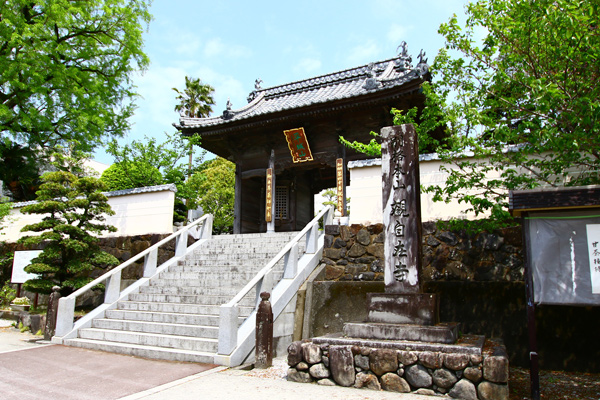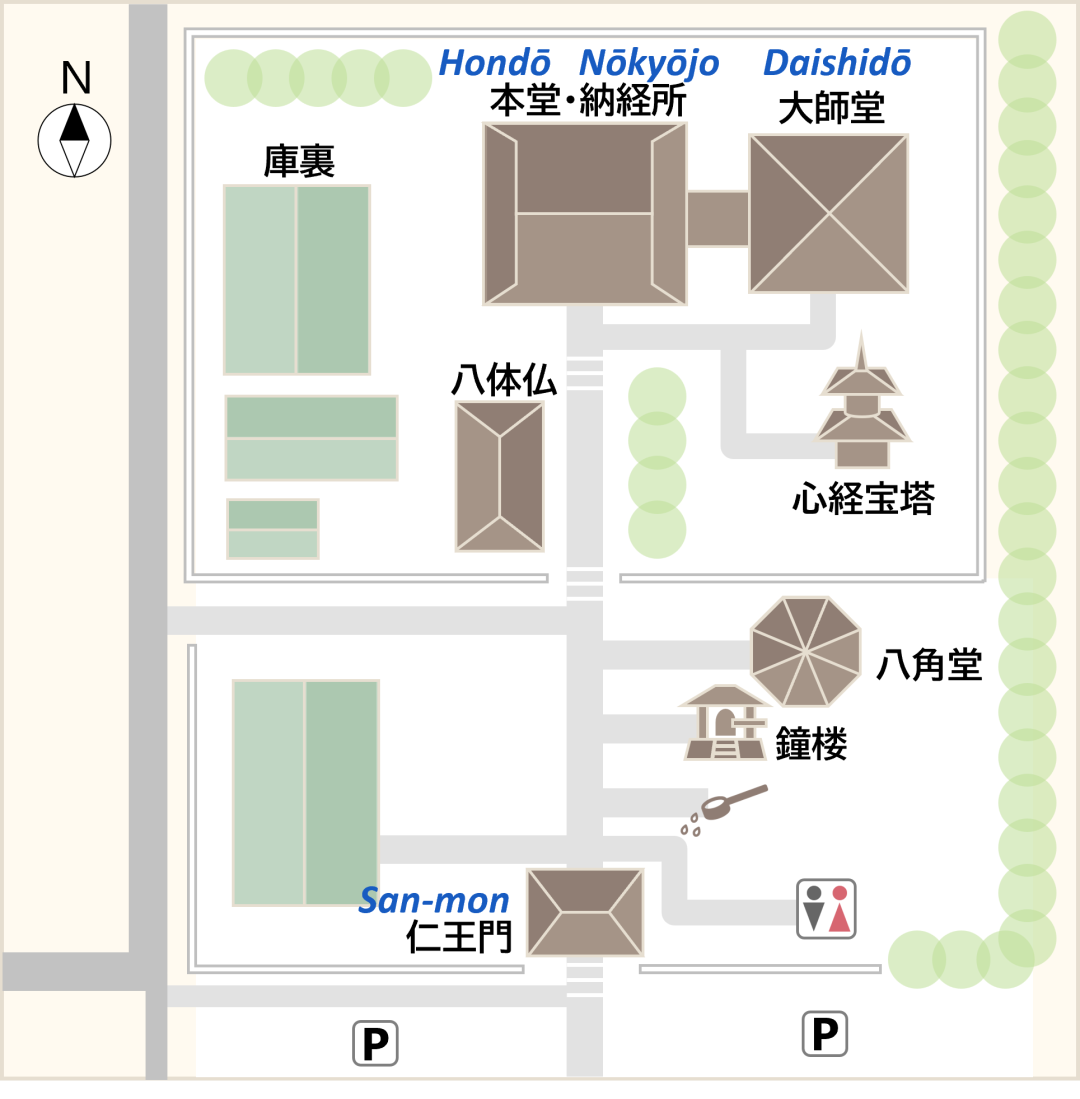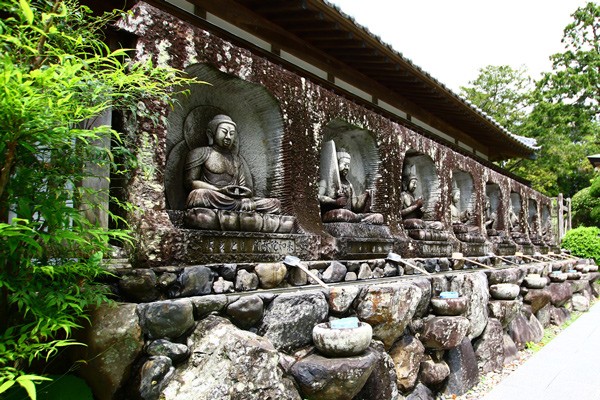The Shikoku Pilgrimage Temple Guide
Temple 40, Kanjizaiji

Precinct map

History of the temple
The temples in Ehime are called Temples of Enlightenment. Kanjizaiji is the first of these and farthest from Temple One, Ryōzenji. It is called, “the secret checkpoint of the Shikoku Pilgrimage.” It is located in the southernmost town in Ehime, facing the beautiful coast of the Uwa Sea. Visitors can fully enjoy the scenery of Ashizuri-Uwakai National Park, which is known for marine recreation and pearl production.
According to legend, Kobo Daishi visited here in 807 by order of Emperor Heijo (reigned 806-809). He carved and enshrined the principal image of Yakushi Nyorai (Medicine Buddha) and the supporting images of Amida Nyorai (Buddha of Limitless Light and Life) and Juichimen Kannon Bosatsu (Eleven-faced Bodhisattva Who Hears the Sounds of the World) from a single sacred tree, and founded the temple. He also carved Namu Amida Butsu (“I venerate Amida Buddha”) on the remaining part of the sacred tree, created a boat-shaped seal, and prayed for curing the illnesses of all people.
Emperor Heijo presented the temple with an imperial tablet named Heijōzan and frequently visited the temple. He collected the temple stamps, dedicated sutras, and sent an imperial envoy every year to perform the Goma fire ritual. The next ruler, Emperor Saga (reigned 809-823) also often visited the temple. For this reason, this area is called Misho (Imperial Land) or Heijo after the name on the imperial tablet.
In 1638 Kusho Hoshinno from Daikakuji stayed at the temple and gave it the name Yakushiin. At that time the temple had vast land holdings, seven major buildings, and 48 branch temples. However, all the buildings were destroyed by fire. Since then, the temple has made efforts to restore its past glory as a temple of the Date family, the feudal lords of Uwajima.
Highlights
Eight Buddhas
In 1978, eight stone statues were carved as guardian deities of the twelve Zodiac signs: Senju Kannon Bosatsu (Year of the Rat), Kokuzo Bosatsu (Ox and Tiger years), Monju Bosatsu (Rabbit years), Fugen Bosatsu (Dragon and Snake years), Seishi Bosatsu (Horse years), Dainichi Nyorai (Sheep and Monkey years), Fudo Myōō (Rooster years), and Amida Nyorai (Dog and Boar years). Visitors can make a wish by pouring water on the guardian deity of their zodiac sign.
Heart Sutra Treasure Pagoda
Kobo Daishi prayed for the healing of Emperor Heijo's illness during his pilgrimage to the temple. In accordance with this legend, worshipers from all over Japan dedicate copies of the Heart Sutra to the temple. In 1978, a building was constructed to house these sutras, with the Hannya Bosatsu inside and the sutras in a subterranean hall.
Hondo
Rebuilt in 1964 with funds provided by believers from all over Japan
Daishido
It was rebuilt in 1993. The hall is made of Japanese cypress and has a corridor where visitors can step on sand at all 88 Shikoku pilgrimage sites.

Annual Events
| March 21 | Daishi Ennichi (Kobo Daishi Day) |
| April 8 | Hana Matsuri (Buddha's Birthday) |
| June 15 | Kobo Daishi Birthday |
| August 21 | Kobo Daishi Festival |
| October 21 | Kobo Daishi Ennichi (Kobo Daishi Day) |
Details
Names: Heijōzan Yakushiin Kanjizaiji
Denomination: Shingon sect, Daikakuji school
Principal Image: Yakushi Nyorai
Founder: Kobo Daishi
Founded: 807
Access
Address: 2253-1, Misho-Hirajo, Ainan-cho, Minamiuwa District, Ehime 798-4110
Phone: 0895-72-0416
Parking: 15 cars below the gate plus 5 cars in front of the elementary school
Lodging: None
Official website:http://www.kanjizaiji.com/
